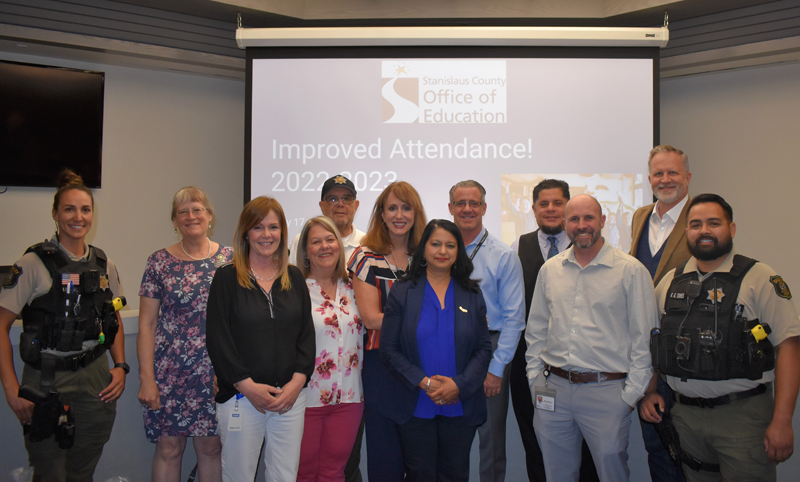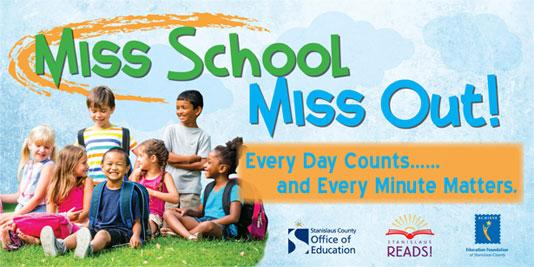On the California School Dashboard, the chronic absenteeism rate for students in grades K-8 is 10.1 percent.
The purpose of the NPIEN SART will be to serve as an advisory board to school districts in addressing the issues of Chronic Absenteeism among Native Hawaiian and Pacific Islander (NHPI) students. The Pandemic has brought attention to the fact that the NHPI community is among the leaders in America in COVID-19 cases due to underlying health conditions which existed prior to the pandemic: Diabetes, Heart Disease and Obesity. These health conditions affect entire families and the ability of students to receive a consistent education. Members of the NPIEN SART will provide information related to their area of expertise that can be shared electronically or in-person as time permits, with school districts from an NHPI perspective. NPIEN SART members will also assist in identifying additional Team members and helping to encourage students to pursue these areas as a career.
The Team (We are still growing and welcome volunteers) |
|
Sharma Uma, School Attendance Review Board (SARB) Specialist, Stanislaus County Office of Education STATEMENT BY SHARMA UMA ON STUDENT ATTENDANCE |
 |
| The Stanislaus County Office of Education's School Attendance Review Board consists of Sheriff’s representatives, Senior Volunteers, a Judge, Public Health, County Board, Directors and Superintendent and local districts. |
Supporting Student Attendance
The Problem: Across the country, more than 8 million students are missing so many days of school that they are academically at risk. Chronic absence — missing 10 percent or more of school days due to absence for any reason—excused, unexcused absences and suspensions, can translate into students having difficulty learning to read by the third-grade, achieving in middle school, and graduating from high school.
Children living in poverty are two to three times more likely to be chronically absent—and face the most harm because their community lacks the resources to make up for the lost learning in school. Students from communities of color as well as those with disabilities are disproportionately affected.
This isn’t simply a matter of truancy or skipping school. In fact, many of these absences, especially among our youngest students, are excused. Often absences are tied to health problems, such as asthma, diabetes, and oral and mental health issues. Other barriers including lack of a nearby school bus, a safe route to school or food insecurity make it difficult to go to school every day. In many cases, chronic absence goes unnoticed because schools are counting how many students show up every day rather than examining how many and which students miss so much school that they are falling behind.
The School Attendance Review Board (SARB) is a multi-agency partnership that meets regularly with students and families to determine the cause of the chronic absenteeism and finding solutions to help the student return to regular attendance. Visit the Stanislaus County Office of Education SARB site for further information.

Contact: Sharma Uma, SARB Specialist
School Attendance Review Board, Prevention Programs
Stanislaus County Office of Education
(209)238-1514
(209)480-0413 work cell
STATEMENT BY DR. VICTOR THOMPSON ON STUDENT ATTENDANCE
A closer look at Pacific Islander student absenteeism by Dr. Victor C. Thompson, Association of California School Administrators (ACSA) EDCAL (Click)
As a student attendance practitioner for more than 30 years, I have awaited the inclusion of student attendance in the state’s accountability system. On the California School Dashboard, the chronic absenteeism rate for students in grades K-8 is 10.1 percent.
Dr. Victor C. Thompson
Student Support Services
Retired Director of Student Support Services and State, County and School District SARB member
Doctoral research on Student Attendance
STATEMENT BY KARE’l LOKENI ON STUDENT ATTENDANCE
Why you believe attendance at school is important in achieving educational goals.
Attendance is important because half the battle is showing up. When students show up, then they've taken the first step into learning and gaining knowledge and information.
Comment on the importance of physical and mental health, diet, and exercise.
Maslow's Hierarchy of Needs states the bottom level of the pyramid is Physiological Needs including physical/mental health, food, shelter, etc. If students' basic needs are not being met whether at home or in school, then the last thing for them to be showing up for is class or their education because their basic needs come first.
Kare'l Lokeni
Higher Education
Long Beach City College
Counselor, Academic Recovery Team
Provides academic support for college students
STATEMENT BY DEPUTY PROBATION OFFICER FUAONE PAALA RUFFINS
Talofa lava,
As a Probation Officer, I have seen the decline of Polynesian/Pacific Islander students attending school on a daily basis due to various reasons. One of the main reasons that I have encountered the absence of a Polynesian student in school is due to the lack of accountability from parents. Most Polynesian parents "expect" their children to attend school without verifying their attendance and/or progress in school. When a student is not being held accountable by their parents, they tend to slowly test their parents awareness by attending school late to missing a class or two to completely not attend school at all. When the student's attendance declines, so does their school work. They are then left with the shame of asking for assistance from their teachers and family.
With NPIEN and the school community, it would be of great service to have someone on campus or assigned to several campuses to monitor a student's attendance and progress on a weekly or bi-weekly basis. Have each student fill out a form and obtain signatures from each teacher commenting on their progress. Have the students submit the completed forms to the assigned staff member which they then review and provide the needed services to the student. Tutoring and counseling/mentoring services would be beneficial for the students and family. To reward the students, field trips to colleges, experience fine dining, gift cards or shopping spree would probably encourage them to not only attend school daily, but to make them understand the importance of having an education.
Fa'afetai tele lava mo le avanoa. Ia Manuia le aso.
Fuaone Paala Ruffins
Deputy Probation Officer
Los Angeles County
200 W. Compton Blvd #300
Compton, CA. 90220
STATEMENT BY AIGALESALA T. AFALAVA ON STUDENT ATTENDANCE AND MENTAL HEALTH
Student attendance is a crucial factor in students' academic success and overall well-being, regardless of their cultural background. From a mental health perspective, regular attendance fosters a sense of routine and belonging, contributing to positive emotional and psychological well-being for young people. For Native Hawaiian and Pacific Islander students, consistent attendance is especially important, providing a stable environment to engage with their peers and educators. Recent research highlights the disparities in attendance rates among these communities in states such as California, Washington, and Oregon.
In California, for instance, data indicates that Native Hawaiian and Pacific Islander students have faced challenges in maintaining regular attendance, potentially due to various socio-economic factors. Addressing these disparities through culturally sensitive interventions and support systems (including access to mental health services) is essential to ensuring that every student has an equal opportunity to thrive academically and personally.
I hope to be part of this team to contribute to this already established comprehensive approach, recognizing that mental health is intricately linked to a student's ability to engage effectively in the educational setting. Recognizing that this collaborative effort can ultimately empower students to overcome barriers, fostering a more inclusive and supportive learning environment.
Aigalesala T. Afalava, MA, LMHC
http://www.nh-counseling.com
253-256-3857
Sala Afalava Appears on the Ukulele_dad/School Talk Story Show on Student Attendance
Aloha/Kia ora, Aotearoa!
On The November 30, 2023 Ukulele_dad/School Talk Story Show, we had a wonderful interview with Sala Afalava, M.A., L.H.M.C. who discussed the importance of Student Attendance. We also discussed Neighbors and Time part 2, and we learned Gobble Gobble and Now is the Hour in Ukulele Class.
Please find the sheet music here. Please subscribe on: YouTube or Twitch.
YouTube Link for the show
STATEMENT BY VERNA CASTRO
Many of us know that some student achievement key indicators are graduation and retention rates, however, we have to consider other indicators that may lead to positive outcomes and that is health, socioeconomic level, meeting basic needs and understanding of culture.
For many of us its critical to have an awareness of realistic expectations on students. Without centering on one's home culture and unique family situation, a student is left to struggle alone with the day to day expectations of showing up to class ready to learn.
As a 27 year former teacher, I have observed some of my Pacific Islander high school students required to stay home to watch an elder, work after school and some during school to support the family, miss school for family obligations, sleepy in class due to additional chores are some examples. We understand clearly that absenteeism contributes to failing grades and eventual dropping out of school in some cases. School staff need pd facilitated by the students and families at the schools, individual education plans gathering wrap around services and understanding of how to ensure success for each student attended by all involved. Thinking about what other PI parent resources and programs, instructional content thats culturally relevant, community organizations, sport teams, church group that might be included as pro active steps. I'm a huge advocate on just listening to the student and parents on how to work collectively. Additionally, a child is not whole until a parent is.
Perhaps, an accessible cultural community center to support the parents basic needs such as language, how to navigage the school systems, IEP and 504 plan processes and supports, food, jobs, healthcare, etc. Regular incentives for attendance, achievement, service and culminating luau or Fiesta to celebrate. Pulling all community resources that a child can identify and feel good about, bring them to the table.
It takes our village and we all are responsible for each child
Verna A. Castro
Inafamaolek.us Executive Director and
San Francisco Unified School District Administrator, Coach, and Teacher
